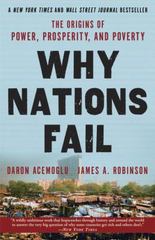Question
q1 According to rational expectations theory, the use of _____ is the best approach to stabilize an economy. automatic stabilizers fixed-rule, stable policies discretionary monetary
q1 According to rational expectations theory, the use of _____ is the best approach to stabilize an economy.
- automatic stabilizers
- fixed-rule, stable policies
- discretionary monetary policies
- discretionary fiscal policies
q2 In the long run, both adaptive expectations theory and rational expectations theory conclude that the results of Keynesian expansionary policies are
- higher real GDP and a lower price level.
- higher real GDP and a higher price level.
- no change in real GDP and a higher price level.
- lower real GDP and a higher price level.
q3Under the natural rate hypothesis, expansionary monetary and fiscal policies can at best produce a:
- short-run change in the long-run Phillips curve.
- short-run change in the unemployment rate.
- permanent change in the unemployment rate.
- permanent change in the inflation rate.
q4If the economy is in equilibrium at the natural rate of unemployment and the Fed pursues an expansionary monetary policy, which of the following will the monetarists predict?
- The economy will move to a temporary equilibrium at a lower level of unemployment and a higher level of GDP.
- The economy will move to a long-run equilibrium at a lower level of unemployment and a higher level of GDP.
- The equilibrium in the economy will not change.
- The economy will move to a long-run equilibrium at the same level of unemployment and the same level of GDP, but a higher price level.
q5Wage and price controls are:
- legal restrictions on wage and price increases.
- voluntary standards set by the government for permissible wage and price increases.
- discretionary monetary policies used by the government to counter the ineffectiveness of fiscal policies in the rational expectations model.
- constitutional provisions to prevent a rise in prices and wages.
q6The Keynesian economists believed that:
- income policies are ineffective in controlling inflation.
- income policies are effective in controlling inflation.
- an expansionary fiscal policy will increase inflation without any increase in the unemployment rate.
- an economy will self-correct to the natural rate of unemployment in the long run.
q7Which of the following statements about income policies is true?
- These can be predicted accurately by people and are hence ineffective.
- These tend to be ineffective over time.
- These affect the marginal rates of taxation and the productive capacities of industries.
Government interference in market demand and supply ensures an efficient allocation of resources.
q8The policy prescriptions of the _____ is to reduce marginal taxes, government regulations, and import barriers to control inflation.
- new classical school
- Keynesian economists
- supply-side economists
- monetarists
q9According to Keynesian theory, how do we reduce inflation?
- Allow the economy to self-adjust
- Increase aggregate supply
- Use contractionary monetary and fiscal policy
- Change inflationary expectations
q10In 1962, President Kennedy persuaded U.S. steel manufacturers to lower their prices. This technique of verbally pressuring unions or businesses without legislation is called:
- wage and price guidelines.
- wage and price controls.
- jawboning.
- an unfair business practice.
Step by Step Solution
There are 3 Steps involved in it
Step: 1

Get Instant Access to Expert-Tailored Solutions
See step-by-step solutions with expert insights and AI powered tools for academic success
Step: 2

Step: 3

Ace Your Homework with AI
Get the answers you need in no time with our AI-driven, step-by-step assistance
Get Started


